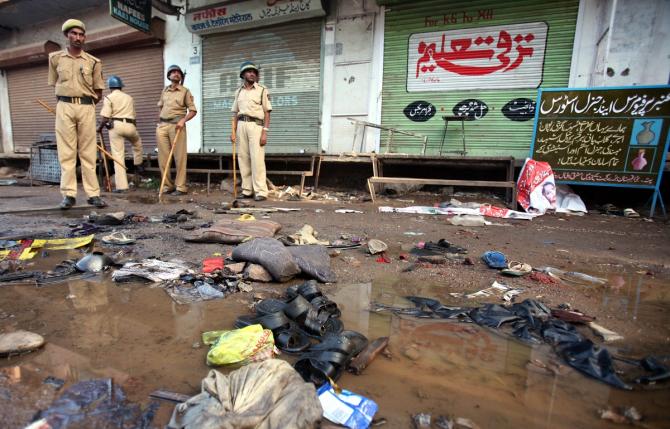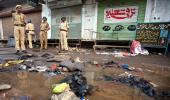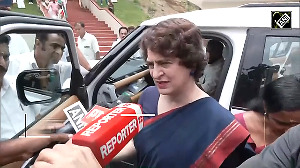The 2008 Malegaon blast that killed six people and left over 100 injured was carried out with the intention to create communal rift and endanger internal security of the state, the prosecution said while making its final arguments in the case.

The final arguments in the case, in which seven accused, including former Bharatiya Janata Party MP Pragya Thakur and Lieutenant Colonel Prasad Purohit, are facing trial, began on Thursday, almost 16 years after the incident.
On September 29, 2008, a bomb explosion at 9:35pm opposite Shakil Goods Transport Company situated between Anjuman Chowk and Bhiku Chowk in Malegaon killed six persons and injured 101.
As per the prosecution, the blast was triggered by an improvised explosive device fitted to a motorcycle (allegedly belonging to former Bhopal MP Pragya Thakur).
The trial against one accused- Sameer Kulkarni has been stayed by the Supreme Court. The other accused in the case, apart from Thakur and Purohit, are Major Ramesh Upadhyay (retired), Ajay Rahirkar, Sudhakar Dwivedi and Sudhakar Chaturvedi. All are facing trial under the provisions of Unlawful Activities Prevention Act (UAPA) and Indian Penal Code (IPC).
"It was the holy month of Ramzan and the Navratri Utsav was to commence. The blasts were caused by the conspirators with an intention to terrorize people, causing loss of life and property. It was carried out with an intention to disrupt supplies and services essential to the community to create communal rift, and to endanger internal security of the state," the National Investigation Agency (NIA), represented by special public prosecutor Avinash Rasal and Anushree Rasal, submitted.
The case was initially probed by the Maharashtra Anti Terrorism Squad (ATS) before being handed over to the NIA, a central agency.
In the final argument, the prosecution cited the ATS probe, which claimed accused Purohit had brought RDX with him from Kashmir after completing his posting there and had kept it in his house.
The ATS probe revealed traces of RDX in the Nashik house of accused Sudhakar Chaturvedi, where the bomb was assembled, and Thakur provided her motorcycle for causing the bomb blast with full knowledge, the NIA's final argument mentioned.
The NIA, after taking over the probe, filed a chargesheet in 2016, in which it gave clean chit to Thakur and three other accused- Shyam Sahu, Praveen Takalki and Shivnarayan Kalsangra saying it had found no evidence against them and had sought that they be discharged from the case.
The NIA court, however, absolved only Sahu, Kalsangra and Takalki and ruled that Thakur will have to face trial.
At the time, the special court had dropped charges under the stringent Maharashtra Control of Organised Crime Act (MCOCA) against the accused.
The special court had, on October 30, 2018, framed charges against seven accused under UAPA and IPC.
The accused are facing trial under sections 16 (committing terrorist act) and 18 (conspiring to commit terrorist act) of the UAPA and under IPC sections 120 (b) (criminal conspiracy), 302 (murder), 307 (attempt to murder), 324 (voluntarily causing hurt) and 153 (a) (promoting enmity between two religious groups).
After the framing of charges, the trial in the case began in 2018 with examination of the first witness. Recording of testimonies of prosecution witnesses was completed in September last year.
The final arguments will continue on Friday.











 © 2025
© 2025